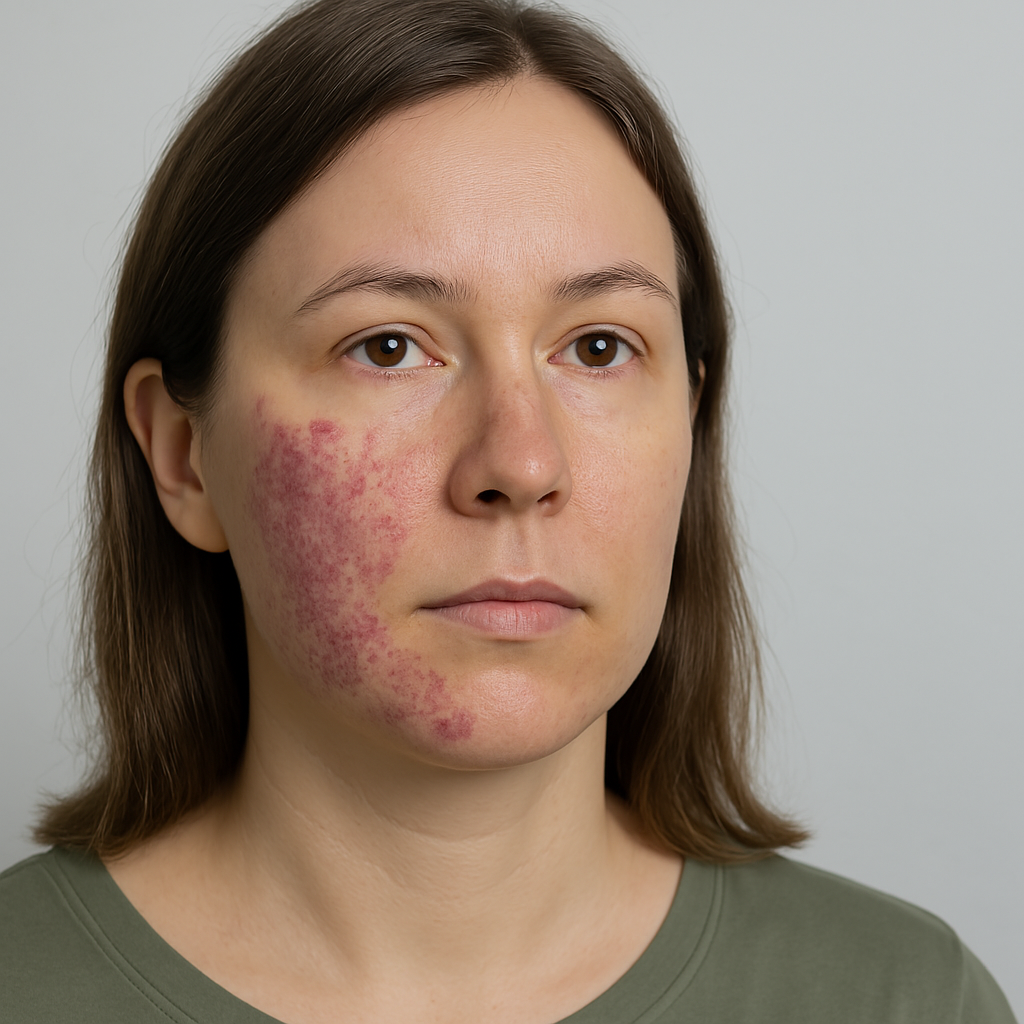Lichen Planus : Symptoms, Causes, Treatment

Lichen Planus is a relatively uncommon, inflammatory condition that affects the skin, mucous membranes, hair, and nails. While it is not life-threatening or contagious, it can cause discomfort, itching, pain, and long-term cosmetic changes if left untreated. Understanding this disease can help individuals seek early diagnosis and effective treatment, improving quality of life and managing symptoms.
This comprehensive article will explain what lichen planus is, its causes, types, symptoms, treatment options, and self-care tips in a simple, user-friendly manner.
What is Lichen Planus?
Lichen Planus is an autoimmune inflammatory disease where the immune system mistakenly attacks the body's own tissues, especially the skin and mucous membranes. It can affect people of any age, but it is more commonly seen in middle-aged adults, and is slightly more prevalent among women than men.
The condition presents itself as flat-topped, purplish, itchy bumps on the skin or as painful white patches in the mouth, genital area, or other mucosal surfaces. It can also impact the nails and scalp, sometimes causing hair loss or nail damage.
Although the exact cause is unknown, many cases are linked to immune system dysfunction, stress, viral infections, or certain medications.
What Causes Lichen Planus?
The precise cause of lichen planus remains unclear. However, several factors are believed to contribute to the development of this autoimmune condition:
1. Immune System Overreaction
The body’s immune system may wrongly target the skin or mucosal cells, causing inflammation and lesions.
2. Medications
Certain drugs used to treat conditions like high blood pressure, arthritis, or heart disease have been linked to drug-induced lichen planus.
3. Hepatitis C Virus (HCV)
There is a notable correlation between chronic hepatitis C infection and the development of lichen planus, particularly oral lichen planus.
4. Dental Fillings
Metal dental restorations, particularly those containing mercury, can sometimes trigger oral lichen planus.
5. Stress and Allergies
Emotional stress and allergic reactions to substances such as dyes or perfumes may also contribute to flare-ups.
Common Types of Lichen Planus
Lichen Planus manifests in several different forms, depending on which part of the body is affected. The most common types include:
1. Cutaneous Lichen Planus (Skin)
Characterized by small, flat, itchy, purplish bumps that often appear on the wrists, ankles, or lower back.
2. Oral Lichen Planus (Mouth)
Presents as white, lacy patches or red, swollen tissues inside the cheeks, tongue, or gums. It can be painful, especially while eating spicy or acidic foods.
3. Genital Lichen Planus
Affects the vulva or penis, leading to discomfort, burning, or painful sores.
4. Scalp Lichen Planus (Lichen Planopilaris)
Results in redness, irritation, and hair loss if not treated early.
5. Nail Lichen Planus
Can cause thinning, ridging, or even loss of nails if severe.
Symptoms of Lichen Planus
Symptoms can vary depending on the area affected. The most common include:
Itchy, purple or reddish-purple flat bumps on the skin
White patches or sores in the mouth or genitals
Burning or pain while eating spicy foods (oral form)
Hair thinning or patchy hair loss (scalp)
Brittle or split nails, discoloration or loss
Hyperpigmentation or dark spots after healing of skin lesions
For some people, the disease is mild and disappears on its own within a few months. For others, it may persist or recur periodically.
Diagnosis of Lichen Planus
Diagnosing lichen planus involves a combination of medical history, physical examination, and laboratory tests. Here’s how doctors usually approach it:
Visual inspection of skin, mouth, or affected areas
Skin biopsy, where a small piece of tissue is examined under a microscope
Blood tests to rule out hepatitis C or autoimmune diseases
Allergy tests in suspected cases of contact lichen planus
Dental examination in cases of oral symptoms
Treatment Options
Although there is no permanent cure for lichen planus, various treatments are available to manage the symptoms and prevent complications.
1. Topical Corticosteroids
These are the most common treatment for skin and oral lichen planus. They help reduce inflammation and itching.
2. Oral Medications
In severe cases, doctors may prescribe oral steroids, antihistamines, or immunosuppressive drugs.
3. Phototherapy (Light Therapy)
Exposure to ultraviolet light can help reduce lesions in widespread or stubborn cases.
4. Retinoids
Vitamin A-based medications, either oral or topical, may help when steroids aren’t effective.
5. Dental Care for Oral Lichen Planus
Avoiding dental irritants and maintaining oral hygiene can ease symptoms. In some cases, topical gels or mouth rinses are prescribed.
6. Antibiotics or Antivirals
If the condition is linked to a viral infection like hepatitis C, appropriate antiviral treatment is recommended.
Self-Care and Lifestyle Tips
Living with lichen planus can be challenging, especially if it affects sensitive areas. These self-care tips may help:
Avoid scratching or rubbing the lesions
Use fragrance-free moisturizers and gentle soaps
Eat a balanced diet and avoid spicy or acidic foods (for oral lichen planus)
Quit smoking and alcohol
Reduce stress through yoga, meditation, or counseling
Visit your doctor regularly for follow-up
Is Lichen Planus Contagious?
No, lichen planus is not contagious. It cannot be spread through physical contact, kissing, or sharing utensils. It is an autoimmune condition, not an infection.
Prognosis and Long-Term Outlook
In most cases, skin lichen planus clears up in 6–18 months, while oral or genital forms may persist for several years. With proper treatment and lifestyle adjustments, symptoms can be controlled, and complications minimized.
However, oral lichen planus has a slight risk of developing into oral cancer, especially in individuals who smoke or chew tobacco. Regular check-ups are important for early detection.
When to See a Doctor?
You should consult a healthcare provider if you experience:
Unexplained rashes or itchy bumps
White patches or ulcers in the mouth
Hair loss or nail changes
Burning sensation in the genitals or while eating
Symptoms that persist beyond a few weeks
Final Thoughts
Lichen Planus may not be a well-known condition, but for those affected, it can significantly impact daily life. Early diagnosis, appropriate treatment, and regular follow-up can greatly improve outcomes. If you suspect you have symptoms, don’t hesitate to reach out to a dermatologist or healthcare professional. Awareness and timely care are the keys to managing this condition effectively.





